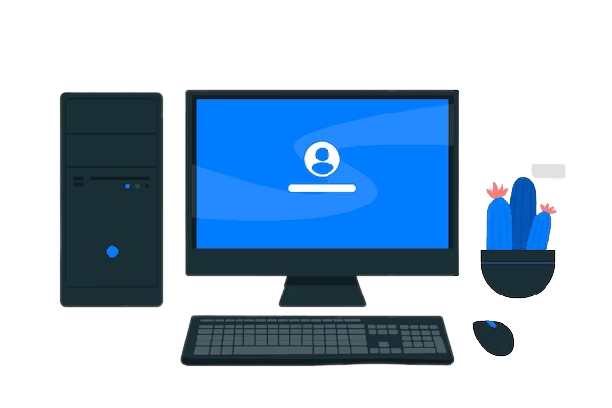Here are some of the benefits of setting up a VPN connection on your Windows PC:
If you need help, the SafeLink VPN Support Team is available via live chat and email.

Step 1: Choose a VPN Provider: Subheading: “Selecting the Right VPN Service”
Step 2: Download and Install the VPN Client: Subheading: “Getting Started with Your VPN”
Step 3: Launch the VPN Client: Subheading: “Connecting to the VPN”
Step 4: Select a Server Location: Subheading: “Choosing a Virtual Location”
Step 5: Connect to the VPN: Subheading: “Securing Your Connection”



A Windows PC VPN, or Virtual Private Network, is a technology that allows you to create a secure and private connection to the internet through your Windows computer. It accomplishes this by routing your internet traffic through a secure server operated by a VPN provider. Here’s a more detailed explanation of what a Windows PC VPN is and how it works:
1. Secure and Encrypted Connection:
2. Anonymity and Privacy:
3. Bypassing Geo-Restrictions:
Setting up a VPN (Virtual Private Network) for a university or corporate network on a Windows PC typically involves using the settings and credentials provided by your institution’s IT department. Here’s a step-by-step guide on how to set up a Windows VPN for a university or corporate network:
Note: Before proceeding, you should have the following information ready:
1. Open Settings:
2. Access Network & Internet Settings:
3. VPN Settings:
4. Add a VPN Connection:
A VPN (Virtual Private Network) app for Windows serves several important functions, all aimed at enhancing your online experience and security. Here's an explanation of what a VPN app for Windows does:
**1. Online Privacy Protection:**
- A VPN app for Windows helps protect your online privacy by encrypting your internet connection. It uses advanced encryption protocols to ensure that your online activities are shielded from prying eyes, such as hackers, ISPs (Internet Service Providers), and government surveillance.
**2. Data Encryption:**
- When you connect to a VPN server through the app, your data is encrypted before it leaves your device and travels through the internet. This encryption ensures that even if someone intercepts your data, they won't be able to decipher it without the decryption keys.
**3. IP Address Concealment:**
- VPN apps hide your real IP address and replace it with the IP address of the VPN server you're connected to. This makes it difficult for websites, advertisers, and others to track your online activities back to your physical location.
**4. Bypassing Geo-Restrictions:**
- Many websites and streaming services employ geo-restrictions, meaning they are only accessible from specific regions or countries. A VPN app allows you to choose a server in a different location, effectively tricking these services into thinking you're in that region. This lets you access geo-restricted content as if you were physically located there.
**5. Security on Public Wi-Fi:**
- Public Wi-Fi networks are often less secure, making them vulnerable to various cyber threats. VPN apps encrypt your data, providing a secure tunnel for your internet traffic even when you're connected to public Wi-Fi, making it harder for hackers to intercept your data.
**6. Bypassing Internet Censorship:**
- In countries with strict internet censorship, a VPN app can help you.
Paying for a VPN (Virtual Private Network) offers several advantages and benefits compared to using free VPN services or not using one at all. Here are some compelling reasons why you should consider paying for a VPN:
1. Enhanced Security:
2. No Data Logging:
3. Faster Speeds:
4. Wider Server Selection:
5. Customer Support:
Virtual Private Networks (VPNs) are generally legal in most countries. VPNs are primarily used to enhance online privacy and security, access geographically restricted content, and maintain anonymity on the internet. They serve legitimate purposes for individuals, businesses, and organizations.
Yes, you can use a VPN (Virtual Private Network) on your mobile device, and there are several reasons why you might want to do so:
1. **Privacy and Security:** One of the primary reasons people use VPNs on mobile devices is to enhance their online privacy and security. When you connect to a VPN, your internet traffic is encrypted and routed through a secure server, making it more difficult for hackers, ISPs, or malicious actors to intercept or monitor your data. This is especially important when using public Wi-Fi networks, which are often less secure.
2. **Bypassing Geo-Restrictions:** VPNs allow you to bypass geo-restrictions and access content that might be restricted or blocked in your current location. For example, you can access websites and streaming services that are only available in specific countries.
3. **Online Anonymity:** VPNs can help you maintain anonymity online. They hide your real IP address and make it appear as if you're browsing from a different location. This can be useful for maintaining privacy and avoiding tracking by websites and advertisers.
4. **Torrenting and P2P File Sharing:** If you engage in torrenting or peer-to-peer (P2P) file sharing on your mobile device, a VPN can help protect your identity and prevent copyright infringement notices from being sent to your ISP.
5. **Circumventing Censorship:** In countries with strict internet censorship and surveillance, a VPN can be used to access blocked websites and communicate more freely without government monitoring.
A VPN can slow down your internet connection because it encrypts your traffic and routes it through a server in another location. The amount of slowdown depends on the VPN provider, the distance to the server, the amount of traffic on the server, and the type of activities you are doing online.
You can minimize the slowdown by choosing a good VPN provider, connecting to a server that is close to you, and avoiding servers that are overloaded. You can also try using a different protocol or disabling some features of your VPN.
Ultimately, the decision of whether or not to use a VPN is a trade-off between security and speed.
VPNs can drain battery because they encrypt all of your internet traffic, which requires more processing power from your device. The amount of battery drain will vary depending on the type of VPN protocol used, the level of encryption used, the strength of your internet signal, and whether the VPN is always running in the background. You can minimize battery drain by using a lightweight VPN protocol, a lower level of encryption, only using the VPN when needed, and turning it off when you're not using it.
Here are some tips to help minimize the battery drain caused by a VPN:
Global presence of servers and data centres to ensure maximum availability and operability of your websites. Get truly connected with our VPN
Split tunneling is a nice little advanced feature that I’m going to list as “optional” just because I haven’t used it as much as I thought I would at first.
Enjoy industry-leading connection stability and reliability, no matter where you are in the world.
If you’re looking at the simultaneous connections and thinking to yourself, “That’s great, but how will I use my VPN service on IoT devices that can’t download these apps.
Your Shield in the Digital World. Protecting Your Privacy, Securing Your Data, and Ensuring Online Trust 24/7.
If you’ve never heard of a kill switch before, it’s basically a feature that will cut your devices’ network access if VPN providers somehow gets disconnected.